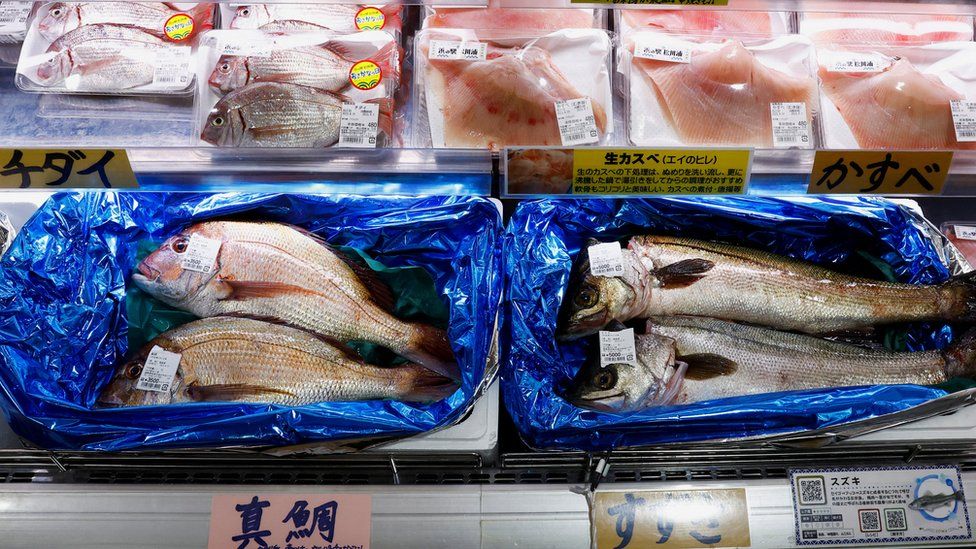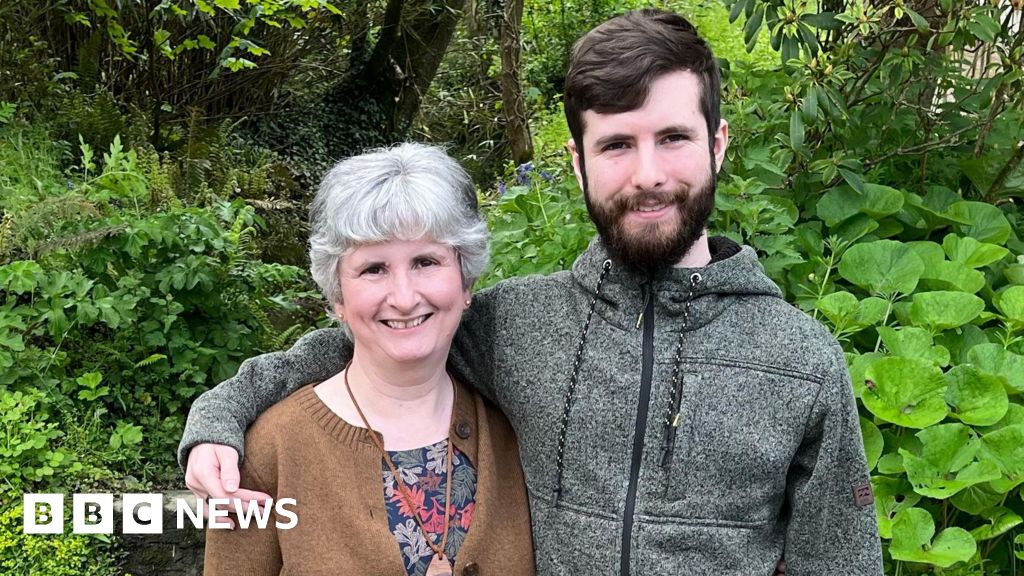ARTICLE AD BOX
 Image source, Reuters
Image source, Reuters
China was the world's biggest importer of seafood from Japan
By Mariko Oi
Business reporter
China's imports of seafood from Japan slumped last month as Tokyo started to release treated waste water from the damaged Fukushima nuclear power plant.
Imports of Japanese seafood fell 67.6% in August from the same month last year, China's customs authority said.
Japan's ministry of agriculture and fisheries says China was the world's top importer of the country's seafood.
Last year, Asia's largest economy imported 84.4 billion yen ($571m; £461m) of seafood from its neighbour.
The sharp fall came as Japan prepared to start releasing the waste water and in the aftermath of the release.
Since the 2011 tsunami which severely damaged the Fukushima nuclear plant, more than a million tonnes of treated waste water has accumulated there.
Japan began discharging it on 24 August, in a process that will take 30 years to complete. The same day China said it would ban all Japanese seafood imports.
Fishing industry groups in Japan and the wider region also expressed concerns at the time about the impact of the release on their livelihoods.
The Chinese import ban came despite Japan saying the water was safe, and many scientists agreeing. The United Nations' nuclear watchdog also approved the plan.
Tokyo has also stressed that similar releases of waste water are common from other nuclear power plants in China and France.
Japan makes regular reports to show that the seawater near Fukushima is showing no detectable levels of radioactivity.
China strongly protested the release, while disinformation prompted incidents such as rocks being thrown at Japanese schools in China and reports of hundreds of hostile phone calls to local businesses in Fukushima.
Tokyo has also warned its citizens visiting China to take precautions and avoid speaking Japanese loudly in public.
The Japanese government has promised financial help for the fishing industry, while the company running the Fukushima plant, Tepco, said it was prepared to compensate local businesses affected by the release.
The country's politicians have also been promoting the safety of Fukushima seafood and water.
In a video released by the Japanese government, Prime Minister Fumio Kishida ate sashimi from Fukushima while former Environment Minister Shinjiro Koizumi surfed in the area.
Economists have said that the fall in seafood exports is unlikely to have a major impact on Japan's overall economy as its total exports to China are dominated by cars and machinery.

 1 year ago
25
1 year ago
25








 English (US) ·
English (US) ·